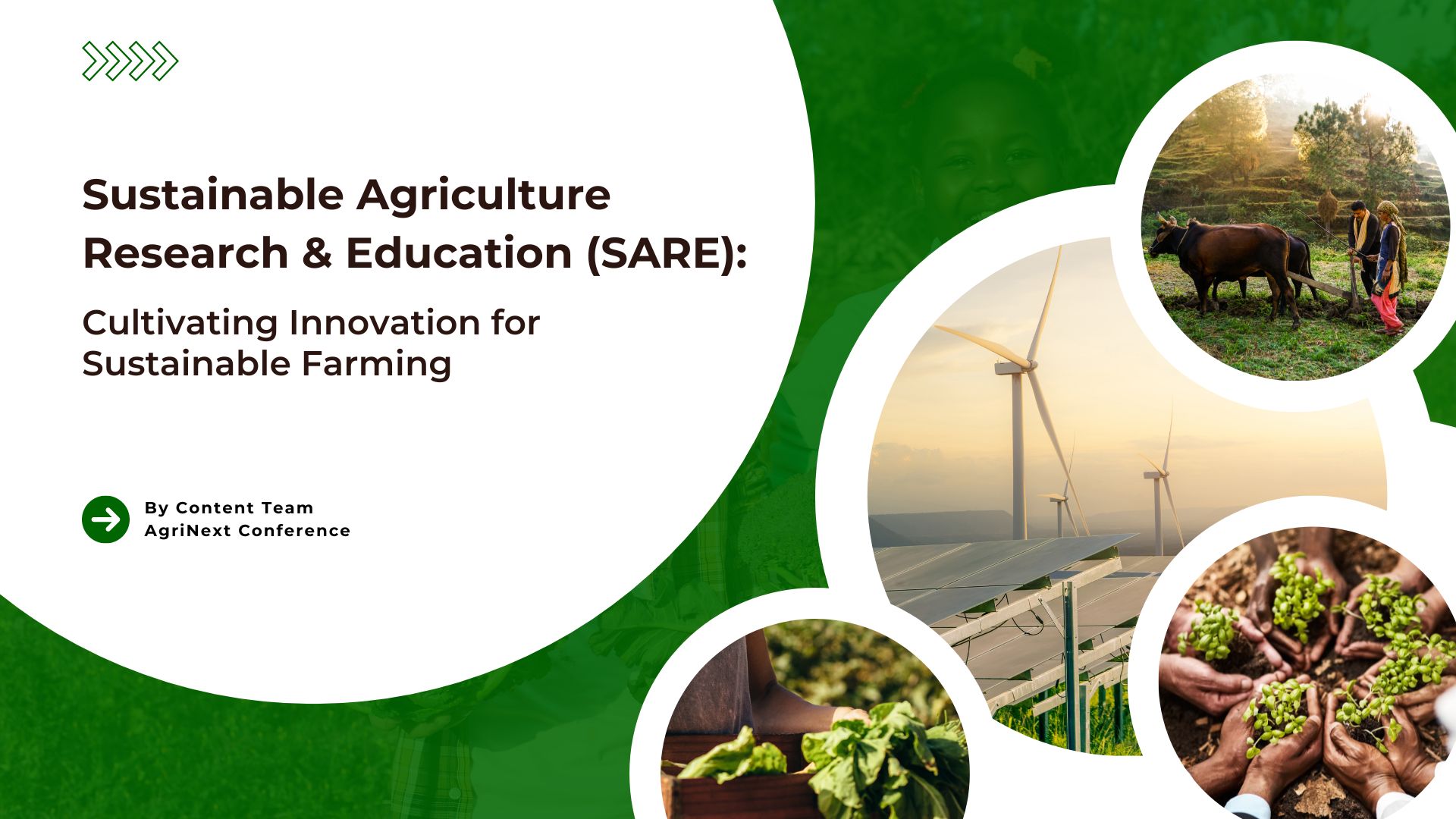
“Sustainable agriculture is one which depletes neither the people nor the land”. Wendell Berry (American poet, essayist, environmental activists, cultural critic and farmer)
Sustainable Agriculture Research & Education (SARE) stands as a beacon of innovation and stewardship in the realm of agriculture. Established with the vision of fostering sustainable farming practices, SARE has been instrumental in transforming agricultural landscapes across the United States. Through its multifaceted approach encompassing research, education, and outreach, SARE empowers farmers, researchers, and communities to embrace sustainable agriculture principles for a more resilient and equitable food system.
Founded in 1988, USDA’s Sustainable
Agriculture Research and Education (SARE) is a farmer-driven research and knowledge-sharing program that encourages farmers,ranchers, educators and researchers who are passionate about innovating to experiment and make growing food more rewarding for themselves, the environment and their communities.
SARE operates across the United States and is administered by four regional offices: North Central, Northeast, Southern, and Western. Each regional office oversees grant programs and educational initiatives tailored to the specific needs and conditions of their respective regions.For instance, the North Central SARE program supports projects that address agricultural challenges in the Midwest, such as soil erosion, water quality, and pest management. Meanwhile, the Western SARE program focuses on issues like drought resilience, soil conservation, and sustainable grazing practices in the western United States.
Fabian Menalled, professor of weed ecology and integrated pest management in the Department of Land Resources and Environmental Sciences in MSU’s College of Agriculture, has been named the Western SARE regional coordinator. Menalled is also Montana’s state SARE coordinator, a position that calls for him to help promote sustainable agriculture locally through noncompetitive grants operated through SARE.
Menalled said. “As a scientist and a state coordinator, I have been supported by SARE for many years. I’m grateful now to be able to create a larger impact for agriculture in the West as regional Western SARE coordinator.”
At the heart of SARE’s mission lies the conviction that agriculture should not only be productive but also environmentally sound, economically viable, and socially responsible. With this holistic perspective, SARE initiatives cover a broad spectrum of topics ranging from soil health and conservation to agroecology, renewable energy, and community development.
One of SARE’s flagship programs is its competitive grants program, which funds projects that explore and implement innovative solutions to agricultural challenges. These grants support on-farm research, demonstration, and education efforts, allowing farmers and researchers to collaborate on practical solutions tailored to local conditions.
By fostering experimentation and knowledge exchange, SARE catalyzes the adoption of sustainable practices such as cover cropping, rotational grazing, integrated pest management, and agroforestry.
One example of a specific project supported by SARE is the implementation of cover cropping in organic vegetable production. Cover cropping involves planting specific crops to cover and protect the soil during periods when the main cash crop is not growing. This practice helps to improve soil health, reduce erosion, suppress weeds, and enhance nutrient cycling.
SARE’s support for cover cropping projects underscores its commitment to advancing sustainable agriculture practices that benefit both farmers and the environment.
One notable example of sustainable agriculture research and education is the Rodale Institute, located in Pennsylvania, USA. The Rodale Institute has been a pioneer in organic farming research and education since its founding in 1947. They conduct scientific research on organic farming techniques, soil health, crop rotations, and livestock management, aiming to develop and promote sustainable agricultural practices.
The Northeast Sustainable Agriculture Research and Education (NE SARE) Program provided Rodale Institute with funding in 2010 to launch a three- year vegetable trial focusing on cover crop alternatives to petroleum-derived disposable black plastic mulch.
The cover crop systems provided serviceable weed control, added more biomass to the soil, contributed nutrients, and increased soil moisture and percent total soil carbon. Although marketable yields were lower on average, some of the cover crop systems achieved higher profits across the three years. The cover crop mulch systems eliminated 91.5 lb of plastic waste per acre.
Rodale Institute’s Chief Executive Officer, Jeff Tkach is on a mission to reconnect humans with the earth. Tkach is responsible for leading the organization’s growth, impact, and strategic planning, and is committed to advancing the Institute’s world-renowned research and education on regenerative organic agriculture.
Through its research and education initiatives, the Rodale Institute has made significant contributions to advancing sustainable agriculture principles and promoting environmentally friendly farming practices worldwide.
Over the years, SARE’s impact has been felt far and wide, from small-scale family farms to large-scale agribusiness operations. By promoting sustainable practices that enhance soil health, water quality, biodiversity, and climate resilience, SARE contributes to the long-term viability of agricultural systems and the well-being of rural communities. Moreover, by fostering connections between farmers and consumers through initiatives such as community-supported agriculture (CSA) and farm-to-table partnerships, SARE promotes a more transparent and equitable food system that values the contributions of all stakeholders.
In conclusion, Sustainable Agriculture Research & Education (SARE) stands as a testament to the transformative power of innovation and collaboration in agriculture. By investing in research, education, and outreach efforts that prioritize sustainability and resilience, SARE inspires hope for a future where agriculture thrives in harmony with nature and nourishes communities for generations to come.
